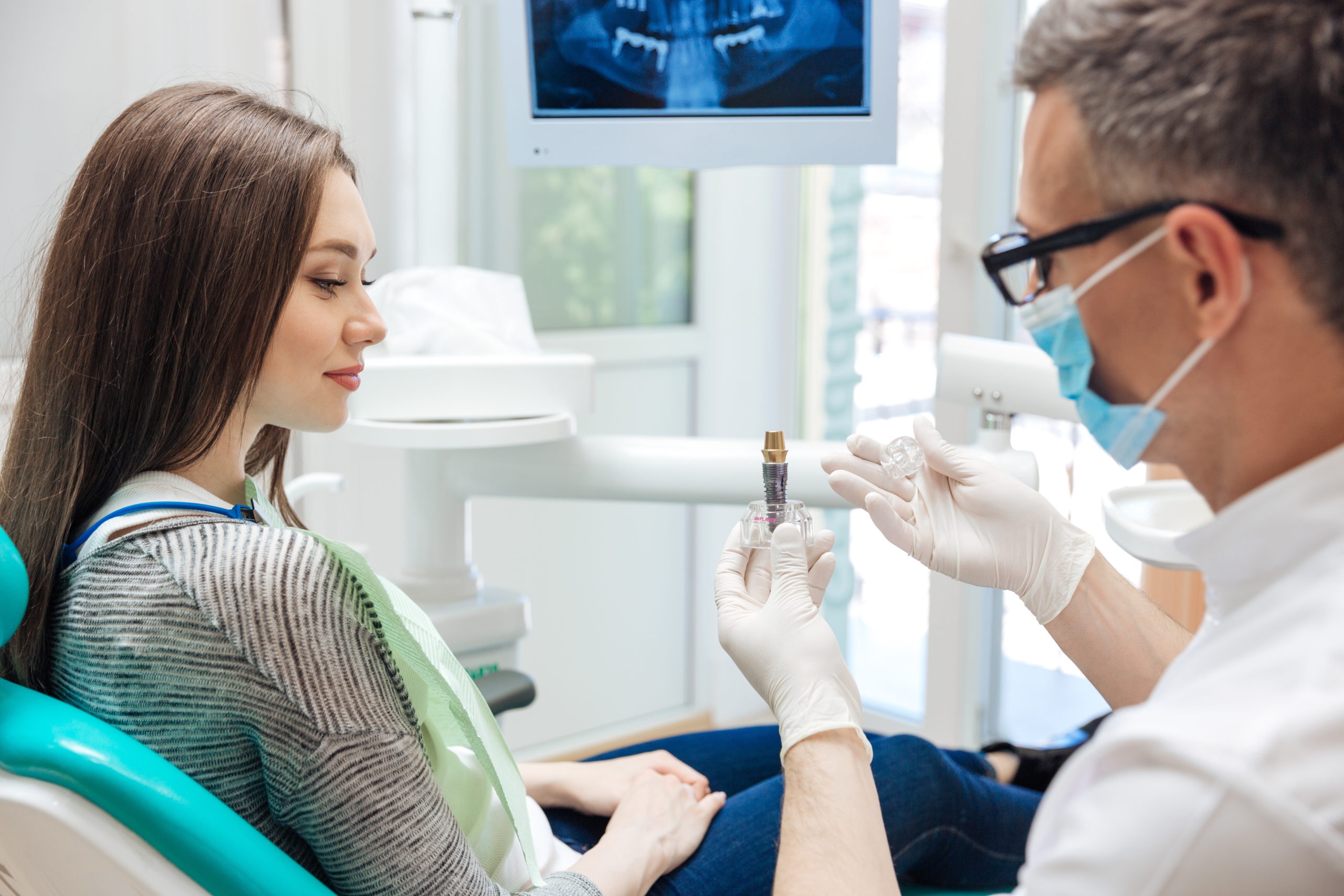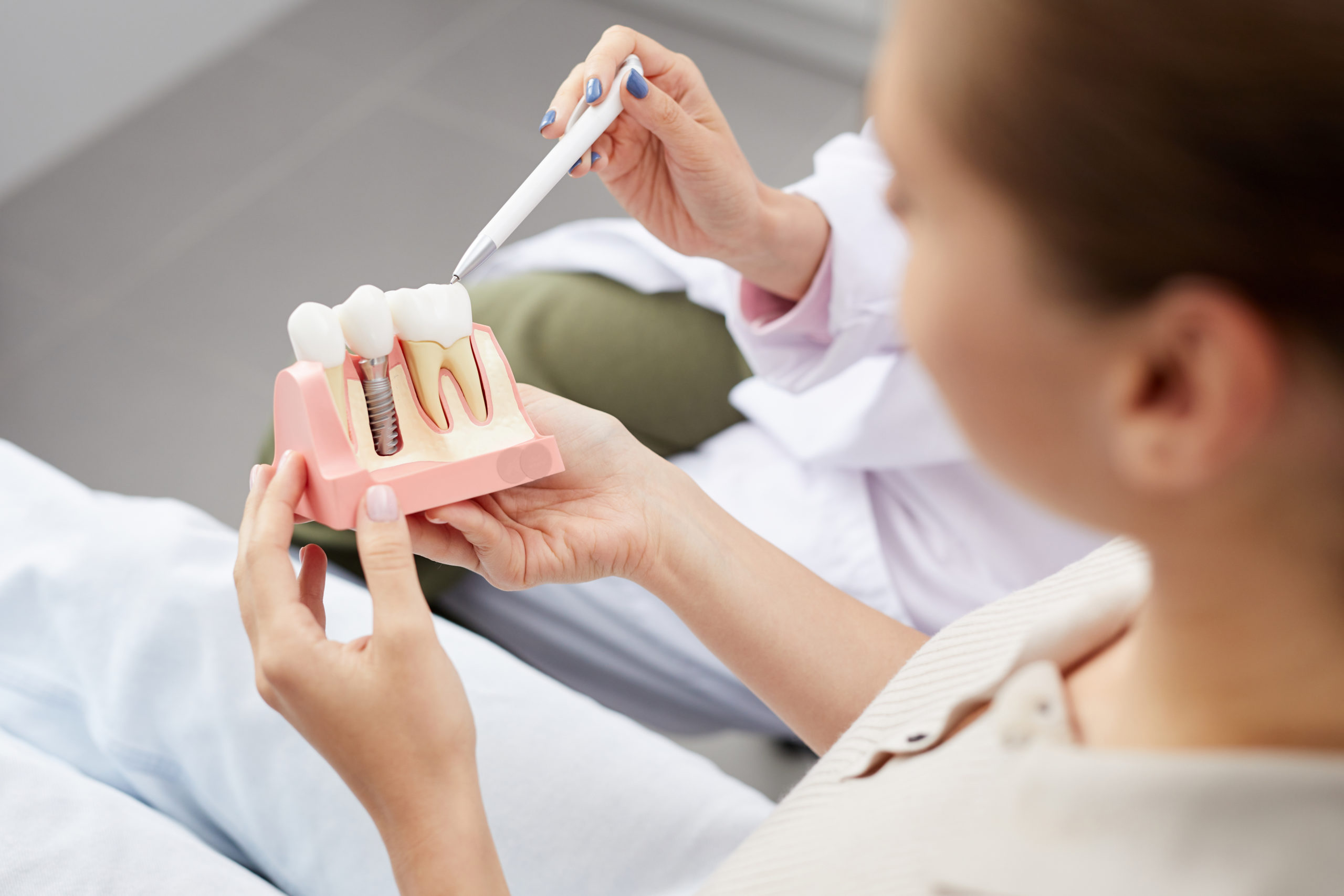Dental implants are gaining popularity nowadays. Implants may be a suitable alternative to dentures, especially if they don’t fit well or find other repair options too disruptive. If you’ve lost a tooth after an accident or natural aging, you might think about obtaining an All On 4 Perth dental implant technique.
Aside from a missing tooth, some individuals might consider getting dental implants St George Utah to improve speech or to eat better.
Did you know that dental implants are decay and cavity-proof because they are made from titanium and porcelain?
During the assessment, the dental surgeon will carefully assess if you qualify for a dental implant based on the condition of your gums, mouth, and bone structure. Sadly, an implant might not be advisable if you have poor oral health or other dental problems involving bone growth.
If you’re eager to know if you’re a suitable candidate for dentures or dental implants, checking out a reliable dentist specializing in dental implants or dentures in Perth would be a good starting point to learn which procedure works best for you.
If you’re planning to visit all on 4 dental implants soon to improve your smile or make eating more enjoyable, here are several considerations to think about.
1. Price Of The Procedure
Dental implant surgery can range from the hundreds to the thousands, depending on the implant type and location. If you have dental insurance, it’ll come in handy in covering part of the costs.
Specifically, getting dental implants ranges from $800 to $6000 per tooth. After a thorough evaluation and discussion of the possible treatment options, find out the reason for the high or low cost of treatment. It may also be possible because the materials used and the specialists’ skills and experience will account for the difference in treatment fees and implant brands.
You should check if you have dental insurance covering the costs of your dental implants. It should also address any monetary discounts or payment arrangements you may have.
With this in mind, it’s essential to double-check ahead of time so you’ll be ready with your finances.
2. Be Familiar With The Procedure
Dental implant surgery involves several steps requiring numerous trips to your dentist. The process begins with the removal of the damaged tooth. If necessary, the doctor will begin the preparation for the grafting of the jawbone. In most cases, it involves taking a tiny bit of bone and placing it into the jawbone.
The type of implant the doctor will use depend on which one matches your teeth. Generally, it’ll take a few months for the bone to grow and fully heal. If you want the best results, make sure to follow the scheduled appointments.
Good news! Many technological advances ensure that implant treatment is safe. One of which is low-dose radiation and the latest digital x-ray machines that are important to produce a lower dose of radiation compared to older machines.
More so, computer planning software ensures to better predict the outcome of the implant treatment even before the surgery.
3. Verify Your Doctor’s Experience And Credentials
It’s crucial to consider the dentist’s experience to determine their capacity to carry out a dental implant surgery. You can check online for feedback or reviews to help you find a reliable dentist. This will also help you know what previous clients have to say. Additionally, don’t forget to ask your family or friends for any recommendations.
Specifically, find a doctor that has a high rate of success. You may also ask for before and after photos of work performed by your dentist. In this case, it will provide an idea of the possible outcome and these photos can also be used to gauge the dentist’s experience in the specific clinical situation.
Most dentists and doctors will claim they are the best, but you need to ensure they have great experience and knowledge about dental implants and make you feel comfortable.
4. Know The Advantages And Disadvantages Of The Procedure
As a surgical procedure, the placement of dental implants can bring about risks. Although the risks are rare, they eventually subside with proper treatment and heal over time.
Infections are the most common risk in dental implant surgery. You face a higher risk if your doctor fails to follow proper cleaning procedures. Other risk factors include misalignment, poor oral hygiene, or an allergic reaction. Other common symptoms after the procedure include bruising, swelling, and bleeding.
Although the procedure has its share of cons, the implants can provide you with a long-term remedy lasting many years. Once your implants are secure in place, they’ll look and feel like natural teeth, so you can eat and talk normally and even help strengthen the jawbone.
Moreover, as with all procedures in medicine and dentistry, not all implant procedures will be fail-proof. In general, the success rate of implants is about 90-95%.
5. Adequate Bone
Before getting a dental implant, the jawbone will serve as its foundation. The doctor will require an X-ray or 3D imaging to determine the amount of bone you have. An implant should latch on to something, and the jaw bone is the ideal base.
Unfortunately, losing teeth causes the jaw bone to shrink. The longer you have an absent tooth, the more likely your bone will deteriorate. Bone loss is the usual reason why some individuals are not suitable candidates for the procedure. Some might need bone grafts or other procedures so they’ll be ready for implant surgery.
6. Frequent Dental Appointments
As a multi-step procedure, you should follow your check-up appointments. Regular assessments of your dental implant by your dentist will ensure everything is going well.
Implants function just like natural teeth and like natural teeth, infections can occur around the implants if they are not regularly checked and cleaned. In general, it usually takes about a year from consultation to final restoration.
Even after the implant placement, it’s crucial to monitor whether it’s healthy and free of any complications.
7. Improve Your Overall Dental Health
Before getting an implant, it might be best to improve your oral health. Maintaining good oral health will give you a better chance of a successful dental implant.
Generally, it would be best to start brushing and flossing your teeth daily to prevent further damage to your teeth. Doing so will also help prevent cavities, gum diseases, and possible implant failure.
If you’re currently smoking, you’re at high risk of implant failure if you’re planning to get an implant soon. Always remember that smoking can bring about significant issues with your oral health and healing after the procedure. If you’re getting an implant, the doctor will advise you to stop smoking at least three months before the surgery. Ideally, if you want the best results, it would be best to quit smoking permanently.
Final Thoughts
As dental implants are becoming popular these days, they can significantly help in restoring your smile. Before you decide to get an implant, take the necessary measures to determine if you’re a suitable candidate by keeping in mind these considerations. With the right dental implant, it can improve your quality of life and bring back your beautiful smile.



